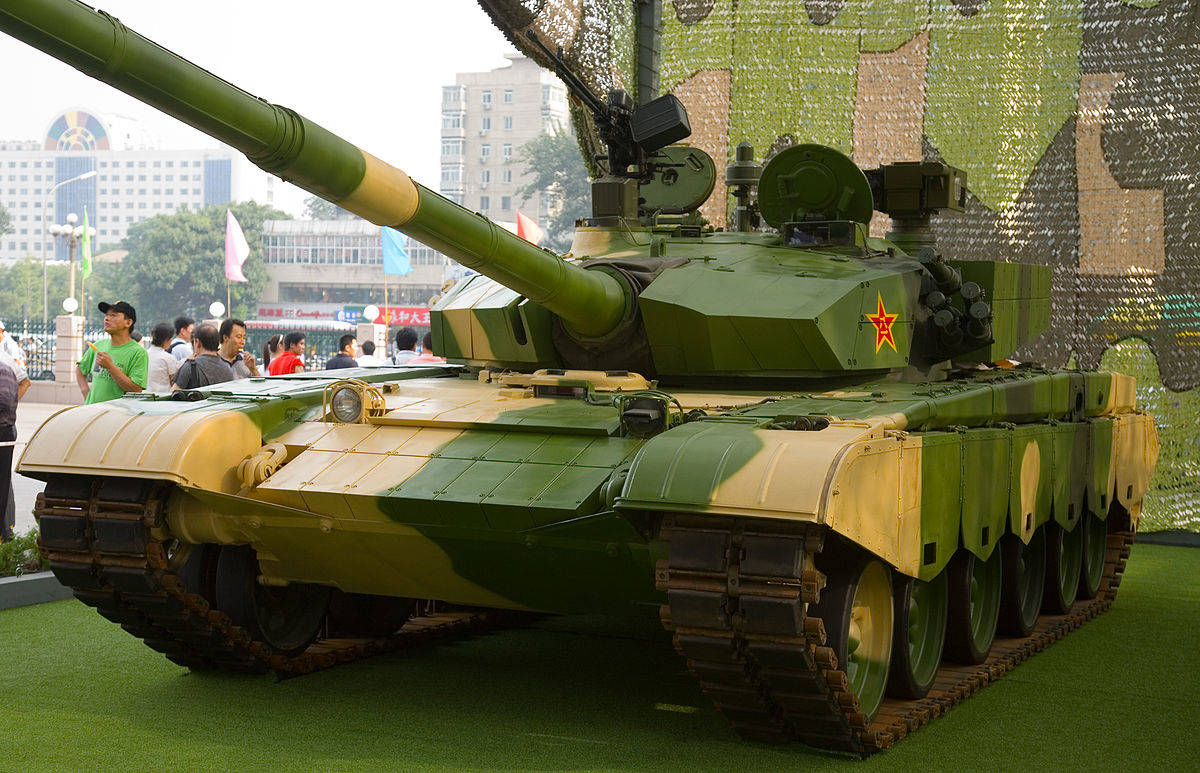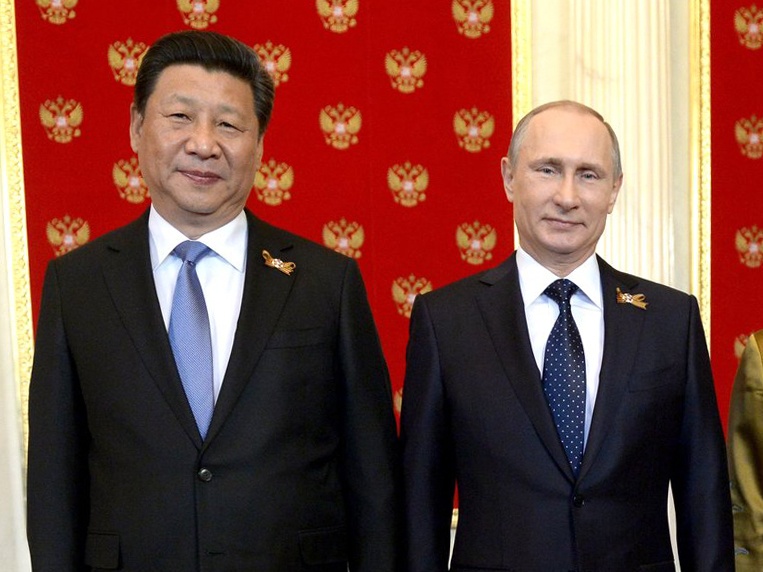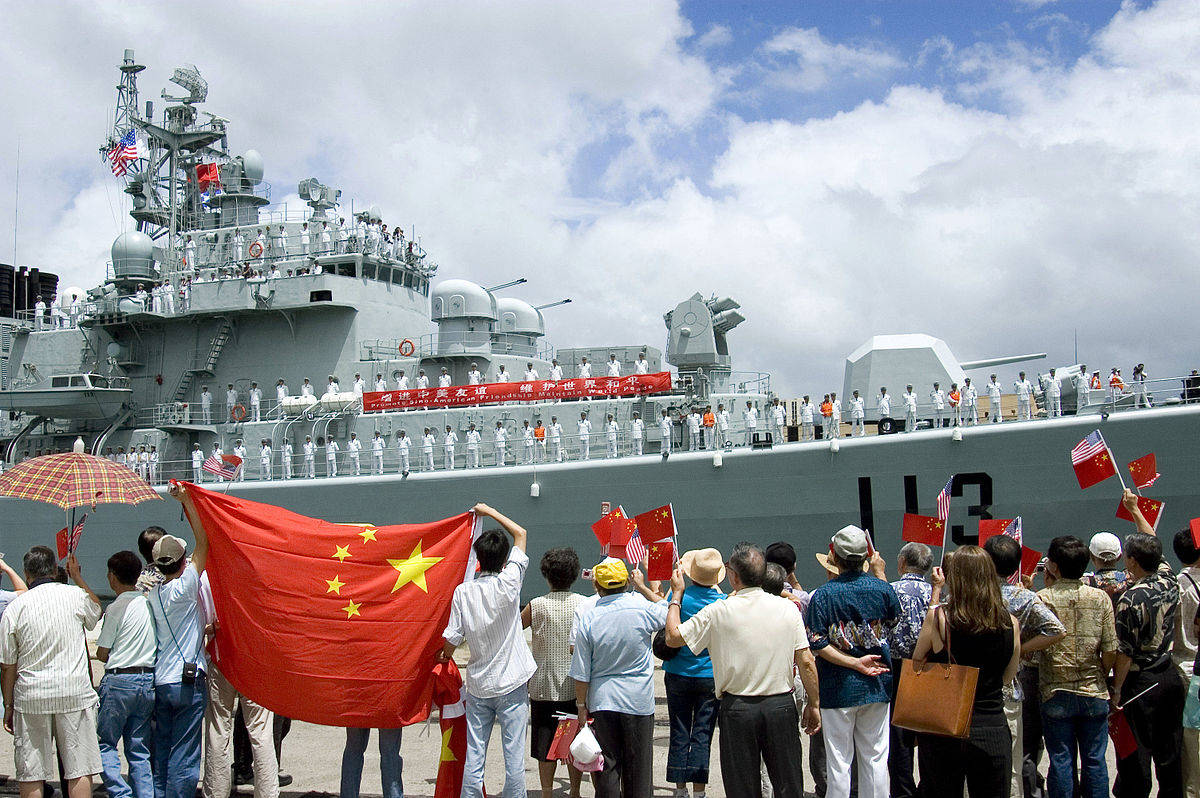With the increasing likelihood that Donald Trump actually has a significant chance of rising to role of President in the United States, people are worried that current global tensions with China’s rise into an economic superpower might actually boil over and a conflict between the two might actually occur.
Featured Image VIA
This is mainly due to Donald Trump’s obsession with China and anger about the fact that the country is challenging the established status quo – check this out:
That was from last August. Even though it’s pretty unlikely to ever actually happen – a conflict between the two nations could develop into a world war and would likely massively affect each country politically, economically and militarily in a bad way, so to avoid this would be a priority for both sides – we decided to take a look at who was more likely to win if the two ever did decide that going to war was a good idea.
Here are a few key factors:
Military

The United States has the biggest and most developed military in the world, and it’s currently four times bigger than China’s. They also have more stealth fighters, tanks, ships and submarines than China but they also have the burden of global responsibility, in that their military is often used as a peacekeeping force for their allies and this has to be one of their main priorities. As such, a lot of their attention is focussed on this task.
Image VIA
China has no such responsibilities and can thus spend the vast majority of their military budget looking at ways to upgrade their technology and modernise their military, with much of this being specifically tailored to ways to beat (or at least better) the United States should the unthinkable ever happen between them. In that respect China may have an advantage – especially if the latest reports on stealth fighter and submarine development are to be believed – but it’s thought that this wouldn’t be enough to crush the numerical superiority of the vastly larger United States army.
However, if the conflict between the two was to be prolonged, then China do have another advantage – they are able to produce more ships and planes at a faster rate than the United States due to their larger population and number of factories. This could have an impact, but it seems unlikely that any potential war between the two would go on for a period of time that would see this become significantly important.
Alliances

Not to diminish the importance of any other country in the world, but by far and away the most important country to consider here is Russia, mainly due to the fact that they also have one of the most powerful militaries in the world alongside the United States and also have a vested interest in any conflict between the two superpowers. Although China is the current emerging superpower in the global climate, Russia undeniably sees itself as a wannabe superpower and definitely wants to end or at least destabilise the established Western-led order.
Image VIA
In recent times, Moscow and Beijing have moved closer towards each other in terms of their economic, political and diplomatic relationship and many analysts believe that this is due to a mutual mistrust of the west and their similar authoritarian governments. In the current climate, it seems as though if China and the United States were to go to war with each other, than if Russia were to get involved than it would almost certainly be on the side of China.
This could create a problem for the United States in terms of the tandem militaries, but the US capability is probably still greater than even the two combined. The United States can also call on its allies all over the world – many of whom they have a peacekeeping responsibility over, so they would be obliged to help – to help them counter this problem, so they would still be the dominant force in the conflict. The United States would almost certainly bring in Australia and South Korea to help them in the region and this would probably lead to China eventually being crushed, even with Russian help.
It’s unlikely that Russia would even decide to get involved though and they’re much more likely to stay neutral and watch it play out from afar, at least on the face of it. However, it’s likely that they would seek to keep the war going as long as possible in order to weaken both of their enemies/rivals. In this respect, they could easily funnel arms and supplies to China across the border that the two share (one of the longest in the world) to keep it going. This seems like a more likely outcome, but it will only serve to benefit Russia and weaken the two countries involved in the actual war.
The United States would most likely win any conflict still, just after slightly more of a hit than before.
Tactics

It’s worth noting that the US spends three times as much as China on its defence budget, which means that a Chinese invasion of the United States remains a pipe dream – as soon as they got their forces anywhere near the US they would be blown out of the water via a multi million dollar missile. It’s simply not going to happen.
Image VIA
It’s equally unlikely that the United States would see a reason to invade China – especially give the spectre of Vietnam – so a ground war between the two seems unlikely. This would be especially true if Russia was allied with China or if there was any uncertainty about where their loyalties might lie and how they might react to a ground invasion.
Therefore, if it does occur, any conflict would probably happen in the air and at sea. The US Military again has dominance in numbers in both of these categories, but recent technological developments suggest that both Russia and China are not far behind in these stakes in terms of the capabilities of their fleet.
The likelihood is that the US would still win any conflict between the two nations (let’s take Russia out of the equation for now) due to their military superiority, but it has also been noted that China have been building its navy recently in order to establish dominance in the waters surrounding Asia and are close to succeeding with this strategy. When facing the much more numerically, tactically and technologically superior United States navy and their allies though, they’re likely to be crushed fairly quickly.
The United States would suffer heavy casualties and it would be a tough war, but most of the experts seem to think that the end result would be the same – an American victory, but at a heavy cost for both nations. Even with Russian support, the outcome remains the same.
Conclusion

In conclusion it seems like that United States would win any conflict that were to occur between it and China, but it probably wouldn’t be quick and it would affect both countries and their futures massively. There’s also the potential that anything going on between them could lead to a worldwide conflict, which pretty much everyone on the globe would be anxious to avoid. World War 3, mass destruction and even possibly the end of the world as we know it.
Image VIA
If this were to happen, then it seems like there would need to be some kind of flashpoint that would set this off and tip the scales from peace to war. As has been seen in the past with episodes though – such as when a Chinese fighter jet rammed an American propeller plane over international waters and forced it to land on Hainan Island in 2001 – although they may escalate into what can officially be labelled a crisis, the fact is that both governments are careful to use diplomacy and avoid the sort of action that could lead to a conflict.
With that in mind, I think that it’s very unlikely we’ll ever see this happen in the near future. It may be in the United State’s best interests though, as the development of Chinese technology and ties with Rusisa may mean that a victory is less likely in the future than it is now, where it seems as though they would crush any potential warmongering from the Chinese. But is that worth the price of war right now when it might be possible to keep the peace for the foreseeable future?















